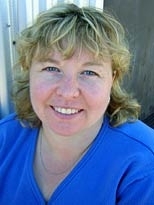This spring, the Experimental Study Group is offering a new six-unit undergraduate seminar in which participants will explore alternative approaches to college education, study examples of alternative college programs currently established in the U.S. and, for a final project, custom-design an entire college program to support students' individual learning styles.
The Alternative Education Seminar (SP.249) is the first of its kind in the Experimental Study Group (ESG), the MIT undergraduate program already known for its innovative, interactive freshmen seminars. A joint MIT-Wellesley course, Alternative Education will be team-taught by faculty from both institutions, with guest speakers from these and other schools. Sessions will be held at MIT during the first half of the term and at Wellesley the second half. The seminar is open to all MIT and Wellesley students.
Patricia Christie, a lecturer in ESG, and Kenneth Hawes (S.B. 1968), an assistant professor of education at Wellesley College, are co-leaders of the new seminar.
"I am always thinking of ways to improve the way I teach, and looking at different means of getting the information across to students," Christie said. "I hope that students who take the seminar get an understanding of what an education means and how many different ways you can learn something. I also hope that this seminar will provide both the students and me with a means of incorporating alternative approaches in courses at MIT or Wellesley."
Hawes, who was an electrical engineering major at MIT, teaches education at Wellesley and has worked with the MIT/Wellesley teacher education program for the past 20 years. He traces some of his interest in education back to a writing course he took his senior year, to his experiences studying math, science and engineering in small groups, and to reading "Summerhill," by alternative educator A.S. Neill, founder of the Summerhill School in 1921.
"In spring 1968, a very politically eventful time, I took a seminar with a writing teacher, Sanford Kaye, which was unlike any course I had taken before, partly because of the approach of the class and the readings, and partly because what I wrote had a resonance and meaning for me that other things had not had. For example, the day after Martin Luther King was assassinated, I wrote a narrative of that day for me. It was not sentimental, it was as real as I could make it. I had never tried to write in that way before," Hawes said.
Seminar participants will examine contemporary alternative college programs as well as models for programs in distance learning, centers for adult education, professional conferences and the Harvard Extension School.
The Experimental Study Group, now in its 36th year, continues to offer undergraduates innovative opportunities in teaching and learning. In keeping with its original mission, ESG provides first-year students at MIT with personalized instruction in the core subjects within a close-knit and informal environment. This includes flexibility in pace and scheduling and small classes where students can get to know one another and their instructors. In the past 11 years, ESG has offered seminars in subjects not regularly offered at MIT to provide all MIT undergraduates with an opportunity to participate in the ESG style of learning.
A version of this article appeared in MIT Tech Talk on February 2, 2005 (download PDF).






